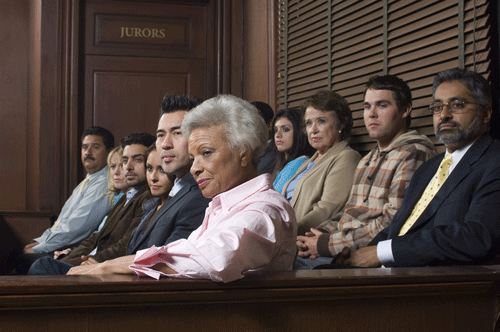
Do All Personal Injury Claims End Up in Court?
Although it may seem like every personal injury claim ends up in court on TV or in movies, that is not the case in real life. In fact, roughly 95% of pending lawsuits settle. This means only one in 20 personal injury cases is tried before a judge or jury. Although most attorneys prepare for every case as if it is going to trial, the reality is that this preparation is often used as a means to obtain a favorable settlement.
Deciding Whether to Go to Trial
When cases do go to trial, it is usually because settlement efforts have been unsuccessful. In other situations, the victim wants to have their day in court for personal or political reasons. For example, if you are a victim of a products liability claim, you may want to go to trial to increase public awareness of a dangerous product. Taking your case to court will help prevent future accidents and make the manufacturer or designer of the product alter their current practices.
Taking a case all the way to trial is extremely time-consuming and can be expensive. Depending on the accident, it can also be emotionally and even physically draining. Some victims want to avoid going to trial because they do not want to relive the experience again when they tell their story in front of a jury.
Victims should carefully consider the pros and cons of taking a case to trial. Your personal injury attorney can help you think through this decision.
Potential Negatives of Going to Trial
No matter how airtight your case may be, there is always a chance of obtaining a negative result when you go to trial. It is always a gamble when you walk into a courtroom. You could end up with everything you requested or nothing at all. There are other drawbacks to consider as well.
- Delayed compensation. It can take months and even years to prepare a case adequately for trial. Victims may not be able to wait this long to address their financial needs after an accident. Settlements offer faster payments so victims can often get back on their financial feet earlier.
- Appeal rights. When a case is heard in front of a judge or jury, there is almost always a right to appeal. This appeal process can drag out for additional months or years, further delaying compensation. There are no appeal rights in a settlement agreement. A settlement finalizes the case so you can move on. This is often very attractive to victims.
- Cost of litigation. Victims who are not on a contingency fee arrangement with their attorneys face significant legal fees when they go to trial. Even those who are on contingent fee arrangement may often need to employ experts who will testify at trial. These costs are often the ultimate responsibility of the victim if he or she wins their case.
Deciding whether to have your day in court is a highly personal decision, and there are advantages and disadvantages that you need to consider for your particular lawsuit. Williams Elleby Howard & Easter will be able to evaluate your case and your unique situation to determine the potential outcome of your case. Contact us in Cobb County, Georgia at 833 – LEGALGA for more information.






